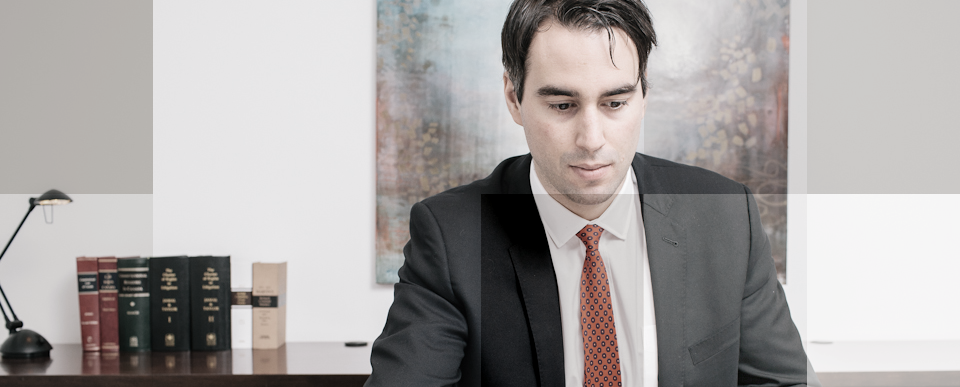Domestic General Criminal
Mr. Martin and his associates also have a long history and broad experience, as illustrated by some of the examples set out below, in the defence of Canadians charged with fraud, securities market manipulation, money laundering, proceeds of crime and other financially motivated crimes. Their philosophy is to defend vigorously within the bounds of the law. As a result Martin + Associates will not hesitate to challenge laws that operate unfairly or to seek to modify or expand legal doctrines so as to ensure that anyone accused of a crime receives full and fair justice.
In 1986 Canadian law at the time imposed a preliminary showing requirement upon an accused seeking access to affidavits filed by police to obtain wiretap authorizations as a necessary first step in the procedure of attempting to challenge the lawfulness and admissibility of wiretap evidence to be tendered by the prosecution at trial. In a series of cases including R. v. Young 1986] B.C.J. No. 1769 (opens pdf)and R. v. Pascoe [1987] S.J. No. 64(opens pdf) Mr. Martin successfully argued that the imposition of such a preliminary showing requirement violated Charter s. 7 fundamental justice guarantees. The Supreme Court of Canada ultimately adopted these cases in 1987 in Dersch v. Canada (Attorney_General), 1990 (opens pdf).
Then in 1988 Mr. Martin won a new trial in Ontario for a lawyer and mortgage broker who had been convicted of fraud after a long trial during which, over objections, the accused had been cross-examined as to their evidence given in unrelated civil proceedings contrary to the Charter s. 13 guarantee against the improper use of evidence given in such proceedings: R. v. Monk [1988] O.J. No. 94 (opens pdf). Following on, retrial proceedings were dismissed due to the unreasonableness of the long trial delay in violation of Charter s. 11(b): R. v. Monk [1989] O.J. No. 522 (opens pdf).
Mr. Martin has always advocated an accused’s right to a fair trial by jury. Thus, in 1991 in R v. Sims [1992] S.C.J. No. 73 (opens pdf) Mr. Martin won a new trial in the Supreme Court of Canada for an accused charged with murder in consequence of a trial judges inappropriate exhortations to a deadlocked jury to view the facts in a manner favorable to the prosecution.
Again, in the 1990s Mr. Martin challenged the efforts of prosecuting agencies to invoke immunity from disclosure duties in a series of test cases culminating in R. v. Gray [1992] B.C.J. No. 1363 (opens pdf). Again, as in Sander in the tax context (see Domestic Tax) after disclosure had been ordered the underlying proceedings were ultimately dismissed for unreasonable delay. R. v. Gray [1995] B.C.J. No. 1890 (opens pdf).
In 1994 Mr. Martin brought his campaign to require prosecuting agencies to make full disclosure of all evidence to the defense to the Supreme Court of Canada in R. v. Chaplin [1994] S.C.J. No. 89 (opens pdf). In that case, after the standards for disclosure were expanded by the Supreme Court, the subsequent prosecution of Mr. Chaplin was abandoned.
In turn Mr. Martin always seeks to do what can be done to attempt to convince prosecuting authorities not to lay charges. So, for example, in 1996 when a former politician and then Chairman of the Board of a large public utility faced criminal investigation for alleged electoral misconduct Mr. Martin moved quickly to manage sensational media coverage (See: Vancouver Sun, March 29, 1996 (opens pdf)) and to make pre-charge submissions to the assigned Special Prosecutor that no offense as a matter of law could be shown. Within months the Special Prosecutor announced that no charges would be laid and that the investigation would be closed.
Mr. Martin also has broad experience in defending transnational cases (see International Criminal Defence). So, for example, in 2003 in R. v. Purdy [2003] B.C.J. No. 1087 Mr. Martin successfully advocated the expansion of the government disclosure obligation in the context of a transnational joint forces investigation. Although Purdy was charged and facing trial in Miami Mr. Martin was able to convince the Canadian Courts that Charter s. 7 fundamental justice requirements extended to require the disclosure, in Canada, of the Canadian RCMP files related to its participation in the joint RCMP/FBI investigation that had led to the U.S. charges. Once the Canadian RCMP files were disclosed the U.S. government abandoned its prosecution of Mr. Purdy as similar FBI files would not have been disclosed in the United States under U.S. law.
More recently, Mr. Martin was retained in late 2010 to defend the CEO and primary shareholder of an electronics equipment manufacturing company who had been charged under Canada’s Export Import Controls Act with exporting circuit boards to his Chinese manufacturing subsidiary in alleged violation of the international Wassenaar Treaty limiting arms and military technology transfers. Mr. Martin immediately retained technical experts who concluded that the “dual use” technology in question was not subject to control with the result that the charges were dismissed by the prosecution before trial. As the mere fact of the laying of the charges has had a devastating effect upon the company and individual involved Mr. Martin is now suing the relevant agencies for damages and punitive damages arising from the conduct of a grossly negligent criminal investigation (see Defamation Actions for Wrongful Charge or Conviction).
Many of these and related principles play an important role in the many domestic criminal cases that Martin + Associates undertakes each year. Each case undertaken by Martin + Associates is treated as a unique challenge requiring agility and innovation so that full answer and defense, and ultimately justice, criminal and civil, can be achieved for each citizen whose liberty is imperilled.
